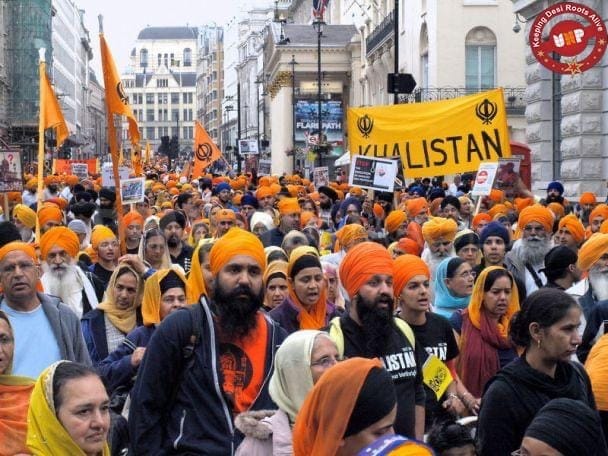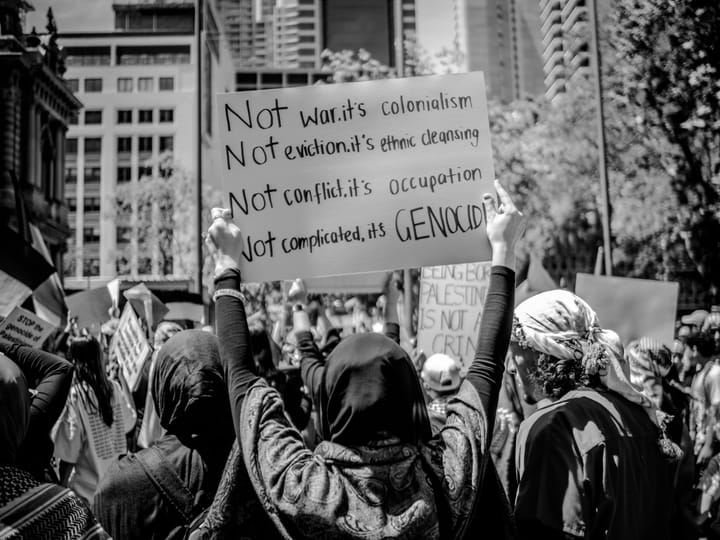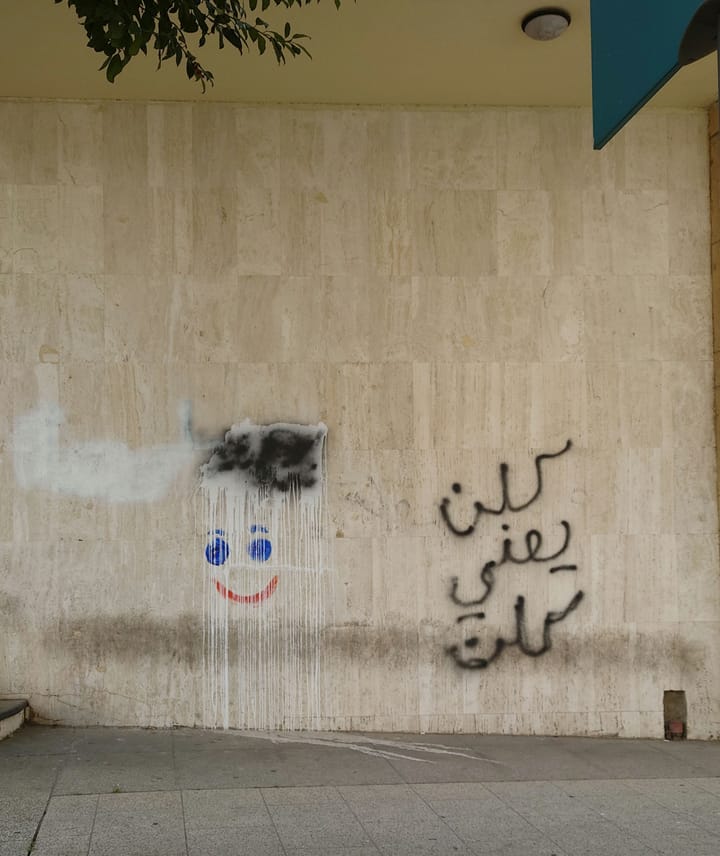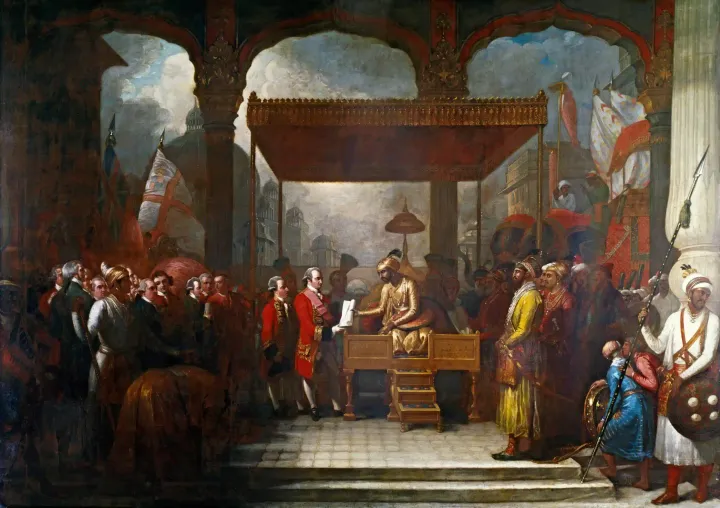Punjabi Rap and the Khalistan Movement
Punjabi rap has recently surged in popularity. However, several artists have faced accusations of supporting the separatist Khalistan movement advocating for an independent Sikh country, which the Indian government considers akin to supporting terrorism.

Punjabi rap has recently surged in popularity not only in its homeland, but among the Punjabi diaspora in Canada, the US, and the UK. Split between India and Pakistan in 1947, the region of Punjab has a long tradition of poetry and music, but Punjabi rap gained massive attention following the debut of artists such as AP Dhillon, Shubh, and Diljit Dosanjh. Drawing inspiration from American hip-hop and traditional Bhangra music, the artists have successfully sold-out shows in India as well as London, Toronto and New York, showcasing Punjabi culture in a contemporary medium. However, several artists have faced accusations of supporting the separatist Khalistan movement advocating for an independent Sikh country established in the Indian state of Punjab, which the Indian government considers akin to supporting terrorism.
Origins of Khalistan
The Khalistan (land of the Khalsa) movement originated around the time of British withdrawal from India on the basis that Sikhs should be allowed a homeland distinct from the Muslim-majority Pakistan and the Hindu-majority India. The Akali Dal Sikh political party sought to protect Sikh interests in Punjab when it was established in 1920.
Despite being the origin of Sikhism and several Sikh Empires, Sikhs remained a minority throughout Punjab compared to Muslims and Hindus. Upon the partition of the region in 1947, most Sikhs migrated to Indian Punjab, where they remained a minority. This was the case until the 1966 Punjab Reorganisation Act, which separated the state into Punjab, Haryana, and the Union Territory of Chandigarh (which served as the capital of both Punjab and Haryana).
In the 1970s, an independent Khalistan was proposed by Punjabi politicians in west London, such as Jagjit Singh Chohan. His later visit to Pakistan included a meeting with Prime Minister Zulfikar Ali Bhutto and was widely publicised in the country. Meanwhile, Akali Dal and other political actors in Punjab were incensed by the division of the state. Subsequently, the Council of Khalistan was established in 1980, and issued symbolic passports, currency and stamps from Amritsar with funds from the diaspora.

Beginning of the Conflict
However, it wasn’t until the 1984 Operation Blue Star that the Khalistan issue gained greater traction. Indian Armed Forces stormed Amritsar’s Golden Temple, the holiest site in Sikhism, killing Sikh leader Jarnail Singh Bhindranwale and hundreds of his followers. The outcry in response to the attack on a Sikh religious day led to the assassination of Prime Minister Indira Gandhi by two Sikh bodyguards five months later. Although openly advocating for greater autonomy and state religious status for Sikhism, neither the Akali Dal nor Bhindranwale had advocated for an independent Sikh state. Later evidence indicated a joint Indo-Soviet effort to fabricate and exaggerate Pakistani, American and domestic support and collaboration for the Khalistan movement.
The 1985 bombing of Air India flight 182 to Canada, which killed all 329 passengers and was conducted by Sikh separatists, led to significant security operations in Punjab under anti-terrorism policies. Whilst bouts of separatist violence have not been infrequent in Punjab since, human rights groups have raised concerns over extrajudicial detentions and killings by security forces. Unpopular agrarian reforms in 2020 sparked the deadly 2020-21 Punjab Farmer’s Protests, in which roads to New Delhi were blocked and discussions of Khalistan once again came to the mainstream. Unofficial ‘Khalistan Referendums’ were held by Sikhs for Justice (SFJ) in areas with large Sikh diaspora populations, such as the town of Southall in London, and Surrey in Canada, to draw consensus for a legal secession from India.
Music as a Political Force
Following these developments, the rise of Punjabi MCs in mainstream music in a country dominated by the Hindi-language Bollywood industry has been eyed with wariness. The killing of Sidhu Moose Walla in 2022, regarded as one of Punjabi rap’s pioneers, was alleged to be an assassination due to his outspoken nature, and the Punjab government’s convenient reduction of his security on the day of his death.


Sidhu Moose Wala (left) and Hardeep Singh Nijjar (right) / Image: Shekha Gill (distributed under CC BY-SA 4.0) and Times Now World
The assassination of Sikh community leader Hardeep Singh Nijjar by Indian intelligence in Canada in 2023, due to his alleged Khalistan-linked ‘terrorist’ activities, damaged Indo-Canadian relations and brought greater attention to the separatist movement. As a result, Khalistan has once again been perceived as a major threat to the central Indian government attempting to integrate a union marred by violence along ethnoreligious lines in Punjab, Kashmir and Manipur.
Canadian-Punjabi rapper Shubhneet Singh, stage name Shubh, came under fire for alleged support of the Khalistan movement in September 2023. A post to his Instagram story titled ‘Pray for Punjab’ included a map of India allegedly distorting Punjab and Kashmir, interpreted as encouraging their secession from India. The Indian leg of his world tour was cancelled amidst backlash, with a subsequent apology explaining that he only sought to bring attention to the internet blackout suffered by the state.

The internet blackout was part of a state-wide manhunt for Amritpal Singh Sandhu, a Khalistan separatist active in Punjab, and hence was interpreted as support for Sikh separatism. Boycotts of the artist and an associated booking agency trended on social media until cancellations were confirmed in a country that has sought to criminalise displaying ‘wrong’ maps excluding territories disputed with Pakistan and China. A subsequent photo of the star holding a hoodie celebrating the assassination of Indira Gandhi at a concert only fuelled anger in Indian media at a sensitive time following Nijjar Singh’s killing in Canada.
Several outlets have reported other Punjabi artists such as AP Dhillon and Diljit Dosanjh as sympathising with the Khalistan movement due to their support of Shubh, and their lyrics alluding to separatism. Inderpaal Moga and Channi Nattan’s 2021 song ‘Daku’ was criticised for several lines referencing quotes from slain leader Bhindranwale, and its theme surrounding a criminal considered a hero by his people. Kaur B has also voiced her support of the Farmer’s Protests and posted several pictures revering Bhindranwale. Sidhu Moose Wala was also alleged to have supported Khalistan, although he never openly declared support for the movement. However, despite gaining significant popularity in the diaspora, no major artist has openly supported separatism. AP Dhillon, one of the most streamed Punjabi artists of all time, posted a story in response to accusations distancing himself from any divisive political movements.

Shubh also stated “India is MY country too” in a post following the controversy, expressing disappointment at having to clarify his loyalties as a Punjabi. Both statements suggest no interest in wanting to involve themselves in politics at any expense of their music careers.
At every turn in history, Punjabis have sacrificed their lives for the freedom of [India]. That's why it's my humble request to refrain from naming every Punjabi as a separatist or anti-national.
Conclusion
Fear-mongering articles describing such artists as terrorist sympathisers or Pakistani ISI agents are analogous with the right-wing BJP government’s attempts to foster an ‘us-vs-them’ narrative and to justify crushing any dissent. Since 2017, India’s annual freedom of press ranking has consistently dropped – ranking 161st out of 180 countries in 2023. Whilst allegations of supporting Khalistan are likely to haunt the careers of many Punjabi artists, such accusations will only bring more international attention to human rights issues in Indian Punjab in what appears to be a resurgence of the Khalistan movement. Nevertheless, fears of a Khalistani infiltration in the Punjabi music industry seem wholly unfounded as of now.
By Farhan Ahmad
Disclaimer: The views expressed in this article do not necessarily represent those of The PublicAsian.





Comments ()